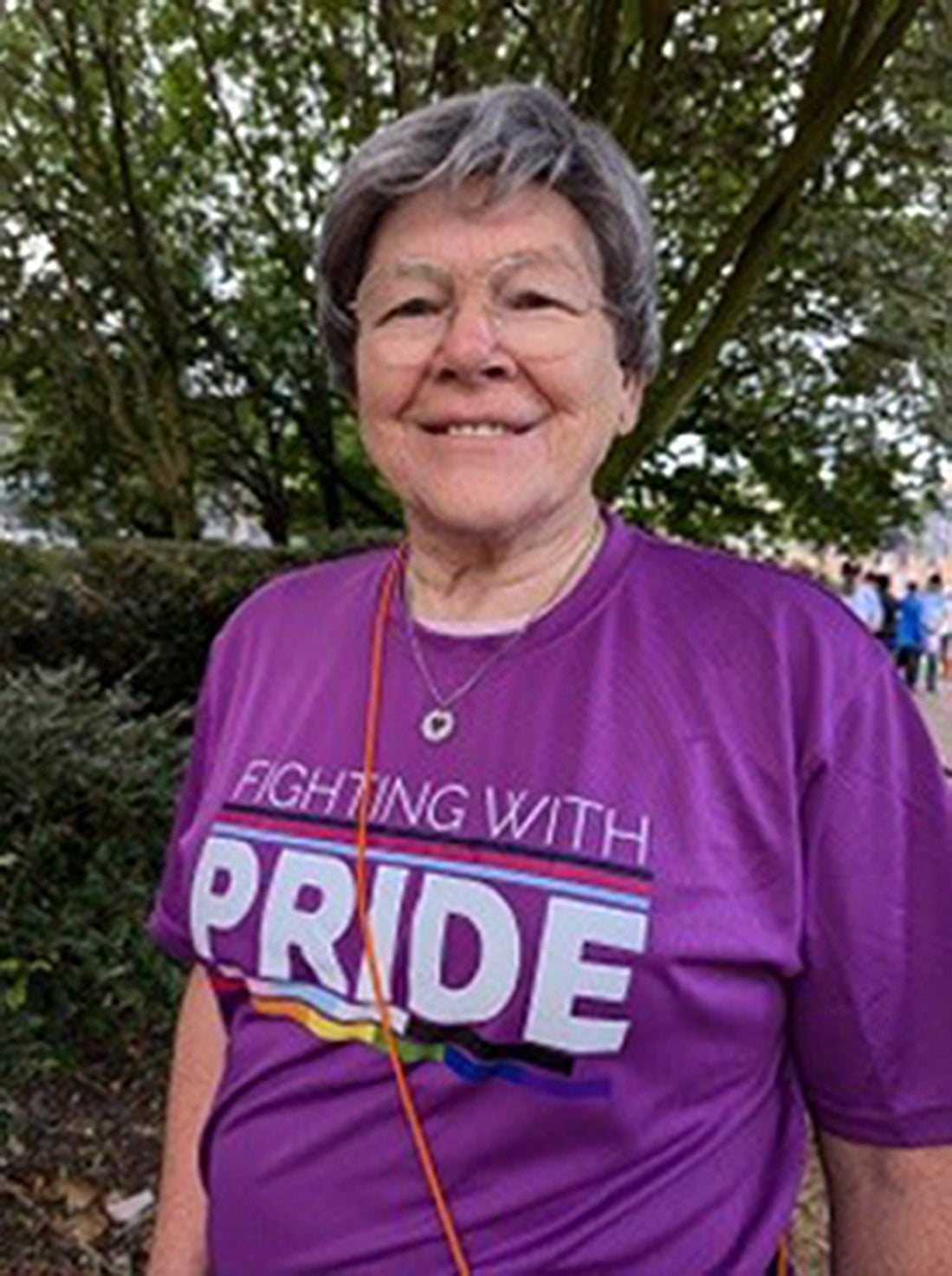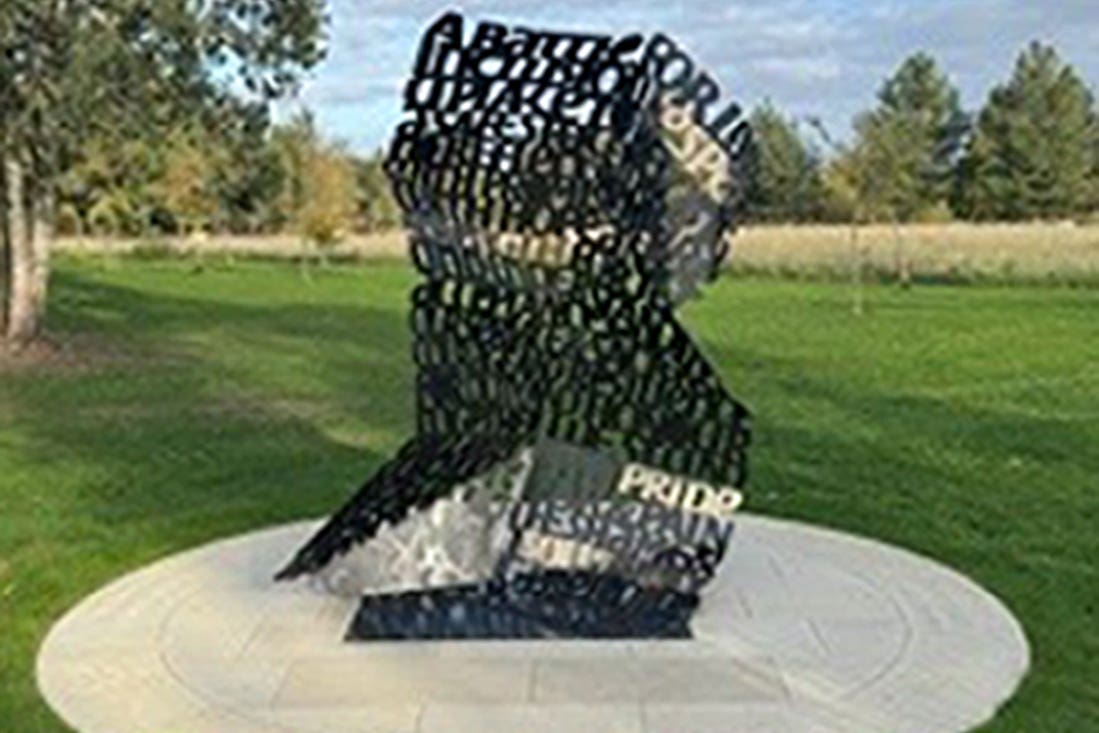King Charles is set to attend the official dedication of the UK’s inaugural national memorial honouring LGBT armed forces personnel, where he will meet veterans profoundly affected by the military’s historic "gay ban".
The monarch will lay flowers at the site, located at the National Memorial Arboretum in Staffordshire, during Monday’s unveiling of the Government-funded public tribute.
LGBT military charity Fighting With Pride described the sculpture as a "powerful step forward in recognising and honouring the service and sacrifices" of the LGBT armed forces community, following their past mistreatment.
The memorial takes the form of a crumpled bronze letter, inscribed with words from testimonies of personnel impacted by the ban, which was enforced from 1967 until 11 January, 2000.
Under this policy, service members who were – or were perceived to be – gay or transgender faced brutal interrogation and dismissal.
Thousands were investigated, discharged, or forced to end their careers due to their actual or perceived sexual orientation or gender identity.
These individuals often endured lifelong consequences, including social vilification from family and friends, and the loss of their military pensions.

As head of the armed forces, King Charles will dedicate the memorial to all LGBT individuals who have served and continue to serve in the military.
He will hear speeches from serving personnel and an address from Ed Hall, chairman of Fighting With Pride, which oversaw the construction and design, and spearheaded efforts to get justice for veterans.
After the ceremony in Alrewas, the King will meet LGBT veterans including those impacted by the discrimination, and also serving personnel.
Claire Ashton, who served in the Royal Artillery, said her “dream career” was ruined when she was forced out of the Army in 1972, aged 21.
She said: “This is a moment I never believed would happen, a moment full of meaning and, finally, of pride.
“I’m in my 70s now and have forever lived with the psychological scars of being kicked out – ‘medically discharged’, as it was labelled on my records.”

Ms Ashton added: “I was punished for being myself.
“It means so much to be with others who’ve been through similar nightmares to me and, like me, are making peace with the past.”
Sharon Pickering, who served in the Royal Navy before being dismissed in 1991, said: “For me, it feels like being welcomed back into a family I missed so much.
“It’s a place where I can stand tall again, knowing that my service is finally seen and valued.”
In 2023, then-prime minister Rishi Sunak apologised on behalf of the British state for the “horrific” historical treatment of LGBT people who served in the military, after an independent review set out 49 recommendations including financial reparations and a public memorial.
The review heard shocking accounts of homophobia, bullying, blackmail, sexual assaults, “disgraceful” medical examinations and conversion therapy.
In December 2023, it was announced that veterans who suffered mistreatment under the ban will receive up to £70,000 each as part of the redress scheme.
Ground has been broken at the @Nat_Mem_Arb to mark the position of the new LGBT+ memorial.
— Office for Veterans' Affairs (@VeteransGovUK) July 15, 2025
Organised by @fightingwpride the memorial, representing a crumpled letter, uses words taken from evidence collected from former LGBT personnel. It will be unveiled later this year. pic.twitter.com/BqGrnBWoQC
Veterans who were dismissed or discharged because of their sexual orientation or gender identity are to receive £50,000.
Personnel who were “negatively affected” by the ban during their time in the service between 1967 and 2000 will be given up to another £20,000, the ministry said.
The payments will be exempt from income tax and means-tested benefits.
Veterans who lost their rank as a result can apply to have their rank restored and discharge reason amended, ministers said.
The memorial has been funded by a £350,000 grant from the Office for Veterans’ Affairs at the Ministry of Defence, having been designed by the Abraxas Academy collective of artists.
Peter Gibson, chief executive officer of Fighting With Pride, said: “It’s a deeply emotional moment, expressing in physical form that what happened to them should never have taken place – and equally, but crucially – must never be allowed to happen again.
“The devastation and destruction caused by people expressing their love cut short successful careers and, in some cases, ended lives. “
Mr Gibson said: “Today is a klaxon call that signals shame can be cast aside and everyone who wants it is welcomed back into their military family.”







